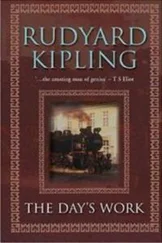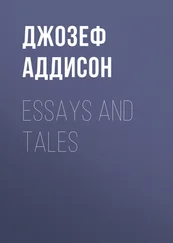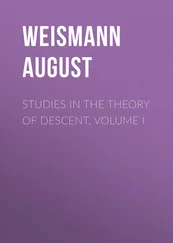Джозеф Аддисон - The Tatler, Volume 3
Здесь есть возможность читать онлайн «Джозеф Аддисон - The Tatler, Volume 3» — ознакомительный отрывок электронной книги совершенно бесплатно, а после прочтения отрывка купить полную версию. В некоторых случаях можно слушать аудио, скачать через торрент в формате fb2 и присутствует краткое содержание. Жанр: foreign_prose, foreign_antique, на английском языке. Описание произведения, (предисловие) а так же отзывы посетителей доступны на портале библиотеки ЛибКат.
- Название:The Tatler, Volume 3
- Автор:
- Жанр:
- Год:неизвестен
- ISBN:нет данных
- Рейтинг книги:4 / 5. Голосов: 1
-
Избранное:Добавить в избранное
- Отзывы:
-
Ваша оценка:
- 80
- 1
- 2
- 3
- 4
- 5
The Tatler, Volume 3: краткое содержание, описание и аннотация
Предлагаем к чтению аннотацию, описание, краткое содержание или предисловие (зависит от того, что написал сам автор книги «The Tatler, Volume 3»). Если вы не нашли необходимую информацию о книге — напишите в комментариях, мы постараемся отыскать её.
The Tatler, Volume 3 — читать онлайн ознакомительный отрывок
Ниже представлен текст книги, разбитый по страницам. Система сохранения места последней прочитанной страницы, позволяет с удобством читать онлайн бесплатно книгу «The Tatler, Volume 3», без необходимости каждый раз заново искать на чём Вы остановились. Поставьте закладку, и сможете в любой момент перейти на страницу, на которой закончили чтение.
Интервал:
Закладка:
The Tatler, Volume 3
1 1 William Cowper was appointed King's counsel about 1694; he succeeded Sir Nathan Wright, as Lord Keeper of the Great Seal, October 11, 1705; was created Baron Cowper of Wingham, November 9, 1706; and was appointed Lord Chancellor, May 4, 1707, which post he held till September 14, 1710. On the accession of King George, he was again appointed Lord Chancellor, and, on resigning the Great Seal, was created Earl Cowper and Viscount Fordwich, March 18, 1717-18. He died in 1723. Lord Cowper refused to accept New Year's gifts from the counsellors at law, which had been long given to his predecessors, and, when he was Chancellor, though in friendship with the Duke of Marlborough, and of the same political principles, he refused to put the broad seal of his office to a commission for making his Grace generalissimo for life. "When Steele's patent, as Governor of the Theatre Royal, passed the Great Seal, Lord Chancellor Cowper, in compliment to Sir Richard, would receive no fee" (Cibber's "Apology"). He was praised by Hughes, under the name of "Manilius," in No. 467 of the Spectator .
My Lord,
After having long celebrated the superior graces and excellences among men, in an imaginary character, I do myself the honour to show my veneration for transcendent merit, under my own name, in this address to your lordship. The just application of those high accomplishments of which you are master, has been an advantage to all your fellow subjects; and it is from the common obligation you have laid upon all the world, that I, though a private man, can pretend to be affected with, or take the liberty to acknowledge your great talents and public virtues.
It gives a pleasing prospect to your friends, that is to say, to the friends of your country, that you have passed through the highest offices, at an age when others usually do but form to themselves the hopes of them. 2 2 The date of Lord Cowper's birth is not known, but in 1710 he was probably about 46. He entered the Middle Temple in 1682.
They may expect to see you in the House of Lords as many years as you were ascending to it. It is our common good, that your admirable eloquence can now no longer be employed but in the expression of your own sentiments and judgment. The skilful pleader is now for ever changed into the just judge; which latter character your lordship exerts with so prevailing an impartiality, that you win the approbation even of those who dissent from you, and you always obtain favour, because you are never moved by it.
This gives you a certain dignity peculiar to your present situation, and makes the equity, even of a Lord High Chancellor, appear but a degree towards the magnanimity of a peer of Great Britain.
Forgive me, my lord, when I cannot conceal from you, that I shall never hereafter behold you, but I shall behold you, as lately, defending the brave, and the unfortunate. 3 3 In a pamphlet entitled "A Letter to Isaac Bickerstaff," 1710, Lord Cowper defended the character of the Duchess of Marlborough against an attack by Bolingbroke in a "Letter to the Examiner ."
When we attend to your lordship, engaged in a discourse, we cannot but reflect upon the many requisites which the vainglorious speakers of antiquity have demanded in a man who is to excel in oratory; I say, my lord, when we reflect upon the precepts by viewing the example, though there is no excellence proposed by those rhetoricians wanting, the whole art seems to be resolved into that one motive of speaking, sincerity in the intention. The graceful manner, the apt gesture, and the assumed concern, are impotent helps to persuasion, in comparison of the honest countenance of him who utters what he really means. From hence it is, that all the beauties which others attain with labour, are in your lordship but the natural effects of the heart that dictates.
It is this noble simplicity which makes you surpass mankind in the faculties wherein mankind are distinguished from other creatures, reason and speech.
If these gifts were communicated to all men in proportion to the truth and ardour of their hearts, I should speak of you with the same force as you express yourself on any other subject. But I resist my present impulse, as agreeable as it is to me; though indeed, had I any pretensions to a fame of this kind, I should, above all other themes, attempt a panegyric upon my Lord Cowper: for the only sure way to a reputation for eloquence, in an age wherein that perfect orator lives, is to choose an argument, upon which he himself must of necessity be silent. I am,
My Lord, your Lordship's Most devoted, most obedient, and Most humble Servant, Richard Steele.No. 115
—Novum intervenit vitium et calamitas,
Ut neque spectari, neque cognosci potuerit:
Ita populus studio stupidus in funambulo
Animum occupârat.—Ter., Hecyra, Prologue.
I went on Friday last to the opera, and was surprised to find a thin house at so noble an entertainment, till I heard that the tumbler 4 4 See No. 108.
was not to make his appearance that night. For my own part, I was fully satisfied with the sight of an actor, who, by the grace and propriety of his action and gesture, does honour to a human figure, as much as the other vilifies and degrades it. Every one will easily imagine I mean Signor Nicolini, 5 5 Cavalier Nicolini Grimaldi was a Neapolitan actor and singer, who appeared first in England in McSwiney's "Pyrrhus and Demetrius." He is often mentioned in the Spectator (see Nos. , , ), and seems to have been a friend of both Addison and Steele. Addison praises him alike as an actor and as a singer. The following letter from Hughes to Nicolini, dated February 4, 1709-10, is given in Hughes' "Correspondence" (Dublin, 1773, i. 33-4): "Depuis que j'ai eu l'honneur d'être chez vous à la répétition de l'opéra, j'ai diné avec Mr. Steele, et la conversation roulante sur vous, je lui dis la manière obligeante dont je vous avois ou parler de Mr. Bickerstaff, en disant que vous aviez beaucoup d'inclination à étudier l'Anglois pour avoir seulement le plaisir de lire le Tatler . Il trouvre que votre compliment à l'auteur du Tatler est fort galant." Nicolini sang in Italian to the English of Mrs. Tofts (see No. , and Spectator , No. ), but Cibber observes that "whatever defect the fashionably skilful might find in her manner, she had, in the general sense of her spectators, charms that few of the most learned singers ever arrive at." A letter from Lady Wentworth, dated December 10, 1708, gives us a curious glimpse of Nicolini and Mrs. Tofts: "My dearest and best of children … Yesterday I had lyke to have been ketched in a trap, your Brother Wentworth had almoste persuaded me to have gon last night to hear the fyne muisick the famous Etallion sing att the rehersall of the Operer, which he asured me it was soe dark none could see me. Indeed musick was the greatest temtation I could have, but I was afraid he deceaved me, soe Betty only went with his wife and him; and I rejoysed I did not, for thear was a vast deal of company and good light—but the Dutchis of Molbery had gott the Etallion to sing and he sent an excuse, but the Dutchis of Shrosberry made him com, brought him in her coach, but Mrs. Taufs huft and would not sing becaus he had first put it ofe; though she was thear yet she would not, but went away. I wish the house would al joyne to humble her and not receav her again. This man out dus Sefachoe, they say that has hard both" ("Wentworth Papers," 1883, p. 66). Mr. Cartwright quotes from a letter in Lord Egmont's collection, dated March 17, 1709: "This day the opera of 'Camilla' is acted expressly for Lord Marlborough. Our famous Nicolini got 800 guineas for his day; and 'tis thought Mrs. Tofts, whose turn it is on Tuesday next, will get a vast deal. She was on Sunday last at the Duke of Somerset's, where there was about thirty gentlemen, and every kiss was one guinea; some took three, others four, others five, at that rate, but none less than one." (Seventh Report of Hist. MSS. Commission, p. 246).
Интервал:
Закладка:
Похожие книги на «The Tatler, Volume 3»
Представляем Вашему вниманию похожие книги на «The Tatler, Volume 3» списком для выбора. Мы отобрали схожую по названию и смыслу литературу в надежде предоставить читателям больше вариантов отыскать новые, интересные, ещё непрочитанные произведения.
Обсуждение, отзывы о книге «The Tatler, Volume 3» и просто собственные мнения читателей. Оставьте ваши комментарии, напишите, что Вы думаете о произведении, его смысле или главных героях. Укажите что конкретно понравилось, а что нет, и почему Вы так считаете.












